The Secret Wife Read online
Page 28
He began to write a novel about a man going through a period of melancholy that tips over into full-blown depression and leads him to attempt suicide. Instead of a puppy, Dmitri’s character was rescued by his secretary, a young woman of eccentric appearance and cheerful disposition whose random thoughts on the universe were pivotal in adjusting the faulty wiring in his brain so that he could hope once more. He called the secretary in his novel Gloria but in essence she was a tribute to Rosa.
Chapter Fifty
Lake Akanabee, New York State, 7th October 2016
Three days after the discovery of the body, a detective came to visit Kitty at the vacation park. He was a tall man with friendly eyes. She invited him to sit on the floral sofa while she took a chair by the pine dining table.
‘I need to ask some questions about your great-grandfather,’ he began, taking out a notebook and rooting around in his briefcase for a pen.
‘Have you identified the body yet?’ Kitty interrupted.
He tapped his pen on the arm of the sofa before answering. ‘She was a woman, in her seventies when she died, and forensics can’t find any signs of broken bones or bullet wounds. They think she could have been buried forty-odd years ago, although it’s not an exact science.’ He paused to let that sink in. ‘Now, your great-grandfather purchased the cabin in 1956 so it seems likely that he owned it at the time the body was buried.’
‘Oh God!’ So Dmitri could have been responsible. It was her worst fear.
‘We checked to see if it might be his partner, Rosa – your great-grandmother – but it seems she died in 1955 and is buried in a cemetery in Albany.’
‘So he bought the cabin a year later. Perhaps he wanted to be alone.’ She imagined him there, grief-stricken, introspective, living a quiet life, but the detective’s next words shattered that vision.
‘Have you ever heard of a woman called Irena Markova?’
Kitty nodded. ‘She was the translator of Dmitri’s later novels. He thanks her in the acknowledgements.’
‘We’ve checked Dmitri’s bank records and it seems he made monthly payments to Irena Markova from 1948 through to 1975. Quite substantial amounts. You never heard anything about her, perhaps from your mother or grandmother?’
Kitty shook her head, baffled. ‘Maybe she did other translation work for him. Or perhaps she acted as his secretary.’
‘We thought of that. We checked the records of the carpet import business where Dmitri Yakovlevich worked on his arrival in the United States, but there was no employee of that name.’
Kitty was amazed. ‘He worked in a carpet import business? I never knew that.’
‘He retired from carpets in 1951, on his sixtieth birthday. By that time he was relatively wealthy because the movie adaptation of his novel In the Pale Light of Dawn had come out, and he owned a share of the box office. The receipts from that and the follow-up, Toward the Sunset, kept him comfortably for the rest of his life.’
Kitty was gobsmacked. Call herself a journalist? She’d been trying to find out about Dmitri all summer and hadn’t even turned up the fact that two of his novels had been filmed. It made her all the more astonished that no one had told her about him when she was growing up. She’d often sat down to watch old movies on Saturday evenings with her mum, dad and Grandma Marta. Why had none of them mentioned the family connection to movies?
‘I see this comes as a surprise,’ the detective continued, ‘so you probably won’t be able to help us fill in any more of Irena Markova’s life story. We know she came to the US from Czechoslovakia in 1948 and set up home in Albany, but we have no record of her death in this country. We got in touch with her stepdaughter, Hana Markova, in a place called Brno,’ – he pronounced it ‘Burr-know’. ‘We tracked her down using the address on Irena’s immigration papers but she says they didn’t hear from her after 1948.’
‘Do you think it might be Irena Markova who was buried at my cabin?’ It was horrible to think of the body as a person with a name, an identity, someone with living relatives who would be upset to hear of her death.
‘It’s only a possibility,’ the detective said. ‘We may be able to make an identification from dental records, or if we find a blood relative who can give a DNA match. But it might be someone else entirely. Perhaps it’s a stranger buried there without your great-grandfather’s knowledge and we may never identify her.’
Kitty shook her head in astonishment. ‘I’m sorry I can’t be of more help, but it seems you know more about my family than I do. Dmitri had lost touch with his daughter Marta when he died and I have no idea why.’
‘I can’t help you there.’ He consulted his notes. ‘Dmitri’s son Nicholas died at the age of forty-five of cirrhosis of the liver. Marta moved to England in 1958 and we don’t know what she did after that.’
‘Cirrhosis!’ Kitty was alarmed. ‘So he was an alcoholic?’
‘Not necessarily – but I believe that’s the most common cause.’
Oh Christ, that means I have a gene for alcoholism, Kitty realised. She knew she had been drinking far too much that summer. She’d have to rein it in.
‘Anyway, you are free to move back into your cabin now,’ the detective said. He stood up and handed her a card. ‘Get in touch if you think of anything that might be pertinent.’
‘Before you go … would it be possible to put me in touch with Hana Markova? I’d really like to speak to her.’
He gave her a sharp look. ‘I don’t think that would be right, in the circumstances, do you?’
It was only then she realised they were seriously investigating her great-grandfather for murder. Could it be true? Had she misjudged him all along? Maybe he had been involved in the murder of the Romanovs and this woman, Irena Markova, was blackmailing him, threatening to expose the truth. Perhaps in the end he killed her to silence her.
It would be horrible to learn she had the genes of a murderer, but one way or another, Kitty was determined to find the truth.
Chapter Fifty-One
Albany, New York State, 1947
Dmitri was bemused by the success of his fourth novel, In the Pale Light of Dawn, and even more baffled when the film rights were snapped up. It was not his favourite of his novels, with its dark core about depression contrasting with the comedy of the quirky, eccentric Gloria, but readers seemed to identify with it. He received hundreds of letters from people telling him of their own struggles with depression. The children had both left for college so Rosa had time to reply to them as his unofficial secretary. Dmitri was invited to Hollywood to visit the film studio but he refused. He didn’t feel protective of his work in this new medium; let the producers do as they wished. When the movie came out, he recognised little as his, but the substantial cheque in his bank account was welcome.
In the Pale Light of Dawn was not just successful in America but was translated into several European languages, and his overseas publishers were quick to snap up the sequel, Toward the Sunset. In autumn 1947, his publicist asked if he would be willing to do a three-week, six-stop tour of Europe to promote his books. They would like him to visit London, Paris, Geneva, Milan, Vienna and Prague, giving a speech in each location and signing copies.
Dmitri was reluctant. ‘Who has money for books after the war?’
‘You’d be surprised how many do,’ his publicist told him. ‘Especially yours, because of the anti-Nazi stance you took in the early 1930s.’
He hated fuss and was embarrassed by the arrogance of standing on a stage and talking about writing as if he was some kind of expert.
‘But you are an expert!’ his publicist exclaimed. ‘Readers want to know how you get your ideas, they want to know about your writing process.’
Alfred Knopf was amused by his hesitation. ‘You don’t have to do it, of course, but why not? All you have to do is spend an hour or so in each city being fawned over by a crowd of your most ardent fans.’
Dmitri finally consented when he realised it would be simple to tack on a tr
ip to Istanbul to see his sisters. He had visited a couple of times in the Berlin years but he hadn’t seen them since he moved to America.
‘Come with me,’ he urged Rosa. ‘We deserve a holiday.’
She shook her head and gave a little shudder, and he knew what that meant. A number of her relatives and old friends had perished in Hitler’s concentration camps and although his tour would not take in Germany, she couldn’t bear to return to European shores. For her, the entire continent had been tainted by anti-Semitism.
‘I’d better stay here in case the children need me,’ she apologised. ‘They’re not as independent as they think they are.’
She bought Dmitri some smart new suits and shirts, shiny black shoes and a pale grey raincoat and fedora hat, and helped him to pack. He felt a pang as the taxi arrived to take him to the station. He would miss Rosa. Life was better when she was around.
Chapter Fifty-Two
Lake Akanabee, New York State, October 2016
Immediately after the detective left, Kitty grabbed her laptop and went to the coffeehouse to use their wi-fi. Once again she was the only customer, and they were no longer serving food as they had cleared the stores ready to close for winter.
She opened her laptop and googled ‘In the Pale Light of Dawn’ and immediately a listing for the movie came up. It had starred William Holden and Ann Blyth, and premiered in 1948. A still showed him sitting on a rock by the seaside looking serious and moody while she posed in a flouncy tropical-print skirt, a coconut-shell bra and a huge floppy sunhat.
The movie of Toward the Sunset had come out in 1950 starring the same pair, this time pictured in camping gear, although Ann Blyth would have struggled to clamber into a tent wearing that skin-tight plaid skirt and sweater, all in clashing shades of shocking pink, lime green and purple. She must try to find copies of the films and watch them, although she suspected they would not stand the test of time.
Next she opened her email account and winced at the volume of emails that flooded in from Tom. She should write and suggest a meeting on her return. She’d punished him enough.
First, she wrote to the editor at Random House, asking if they had any records concerning Irena Markova, her great-grandfather’s translator. Could they shed light on those monthly payments? Next she went into the genealogy website she used and asked how she would track down someone in Brno in the Czech Republic, giving all the details she had. In her experience people on genealogy forums went to great lengths to help each other.
She sat back to sip her coffee, wondering if there was anything else she could do to find out about Irena Markova. She noticed that her Random House email wasn’t getting through but was sitting in the out-folder while the rainbow circle span round and round, implying the connection wasn’t working. She pressed the ‘Send and Receive All’ button and instantly something shifted. The Random House one went through, and then another, the one from her drafts folder, the angry one to Tom.
‘No!’ she cried, trying too late to click to stop it as it disappeared into the ether. A second later it popped up in her ‘Sent’ folder. Oh Christ, what have I done? Kitty thought. Now she would have to write to apologise for her sarcasm.
Her flight left on the 14th of October, the following Wednesday, and arrived in London at dawn on the 15th so she supposed she could meet Tom that evening. She would be jetlagged though. Maybe she should stay with a friend and wait till the weekend.
As she hesitated an email arrived. It was from Tom and the header read ‘If you don’t love me any more, please just tell me …’
There was no text inside. Her eyes filled with tears. It wasn’t fair to punish him like this. She typed a brief reply: ‘I’m arriving back next Thursday. Meet me at 6 p.m, in the bandstand.’
It was a spot in their local park where they used to meet back in the days before they lived together. She would rush there, stomach fluttery with excitement, desperate to see him again even if they had only parted that morning. Suddenly, thinking about the forthcoming meeting, she felt that same buzz of anticipation.
Chapter Fifty-Three
Europe, autumn 1947
Dmitri was ashamed on arrival in London to realise how much Americans had been cushioned from the impact of the war. Back home they had suffered no physical hardships but here there were gaping holes between buildings where rockets had destroyed people’s homes, leaving whole streets looking like mouths with missing teeth. The central London hotel in which he was accommodated was shabby and faded, with unreliable electricity and strictly limited hot water. The food was terrible: greasy stews with meat of indeterminate origin that got stuck between his teeth, served with watery boiled potatoes. The smell of cabbage permeated the hallways. He was glad he had brought his own coffee, although it did not taste the same with the milk powder he was offered in lieu of fresh.
In Paris people were starving. Women offered themselves on street corners, while ragged children clung to their legs. When they called out their fees Dmitri realised he could have hired a prostitute for the equivalent of less than a dollar had he been so inclined. Instead he handed out cash to those he passed, and they mumbled their thanks without meeting his eyes. Who was he to think he could write about depression? These people knew far more than him.
In each city he gave a short speech to a crowd, usually around fifty souls, then answered their questions. What did he think of the movie of In the Pale Light of Dawn? ‘No comment,’ he said to general laughter. Had The Boot That Kicked really been an anti-fascist book, as was thought at the time? ‘That was absolutely my intention,’ he said, ‘but I hope it can be read as a diatribe against any form of oppressive state control.’ ‘How did he feel when reviewers compared him to his compatriot Vladimir Nabokov?’ ‘I wasn’t aware they did, but would be immensely flattered if that were the case.’
A few copies of his books were sold, then he was usually taken to dinner by his local publisher plus wife. Dmitri had never been comfortable talking to strangers, despite all the lessons he had learned from Rosa over the years. He struggled with these foreign publishers, all of them speaking a language that was not their native tongue, talking about books he had not read, and he wished Rosa was there because she would have made the conversation flow smoothly.
His favourite part of the tour was the long train rides between cities when he could gaze out the windows at farm workers bringing in the harvest, at small villages with bustling marketplaces and churches that had lost their steeples in the war, at vast forests on the lower slopes of mountain ranges that already had snow-crusted peaks although it was just early October. It was a time for contemplation.
He had no desire to live in Europe any more. America had welcomed him with open arms and he hoped their constitution and ethnic mix would prevent any extreme political parties taking power as they had in Russia and Germany. He’d noticed some anti-Russian sentiments in the press – mostly comments on the territory they had grabbed in the post-war scramble and fears that Communist sentiment might spread across the Atlantic – but it did not worry Dmitri as he agreed with them. His hatred of Communism was stronger than ever.
He was concerned about the last stop of the tour, in Prague, because the previous year the Communist Party had won thirty-eight per cent of the vote. What were the Czech people thinking? he wondered. Had they not heard of the Soviet show trials and mass executions, of the Siberian prison camps with forced labour, of the secret police who arrested you for nothing but a sideways glance at the wrong moment? Why had they invited him, a known critic of the Soviet regime, to speak there? Could it be a trap?
His Czech publisher met him at the train station and seemed nervous as they took a taxi to the hotel.
‘There will be spies from the Interior Ministry at your speech this evening so I suggest you steer clear of politics. We don’t want to have a famous American author arrested while in our care.’ He gave a little laugh, as though trying to make light of it, but Dmitri saw the nervous dart of his eyes and recogn
ised it from Russia in 1917, when you could never be sure of the allegiance of anyone you spoke to.
‘I don’t plan to discuss politics but my audiences have invariably asked my views at previous stops on this tour,’ Dmitri said.
The publisher nodded. ‘I think you’ll find they won’t here.’
The talk that evening was in the Café Slavia, an Art Deco establishment on the banks of the Charles River with a view towards the castle. It was famous as a meeting place of Prague intellectuals, such as Franz Kafka and Karel Capek, but Dmitri’s audience seemed composed of a mixture of down-at-heel students and elderly ladies, one of whom had a miniature dog on her lap. Dmitri hoped it would not interrupt him by yapping. To the side of the hall stood two men in long dark coats. He could tell from the hostile way they regarded him that they were secret police. Unwanted memories came flooding back and he hurried to the lectern to begin his speech. He was booked on a train to Istanbul the following morning and suddenly couldn’t wait to get on board.
He talked about the Russian literature that had shaped his literary tastes, about the way his own life experiences fed into his writing, and about the influence of America with its movies and fast food and ubiquitous advertisements leading to consumer culture and a generation who were no longer satisfied with the lives their parents had led.
When he finished, the questions flooded in. How many drafts of each novel did he write? There were gasps when he replied ‘Around twenty.’ Had he started a new book to follow Toward the Sunset? ‘Not yet,’ he replied, explaining that he could not write on demand but had to wait for inspiration. The men in the dark coats stood expressionless.

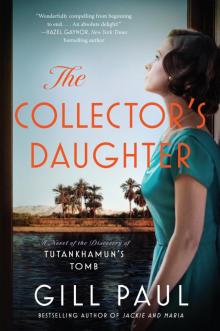 The Collector's Daughter
The Collector's Daughter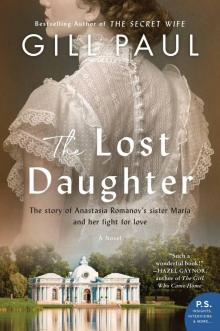 The Lost Daughter
The Lost Daughter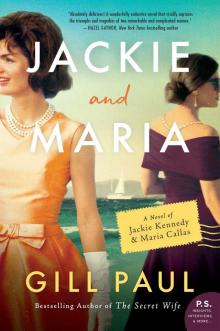 Jackie and Maria
Jackie and Maria The Affair
The Affair Love...Maybe
Love...Maybe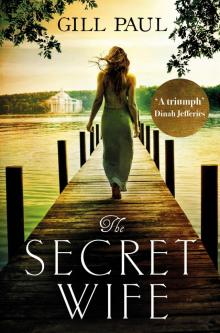 The Secret Wife
The Secret Wife No Place For a Lady
No Place For a Lady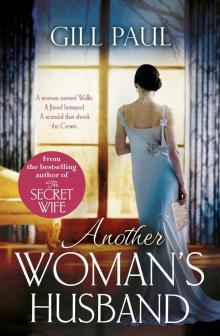 Another Woman’s Husband
Another Woman’s Husband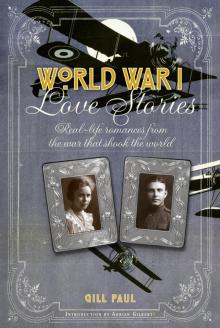 World War I Love Stories
World War I Love Stories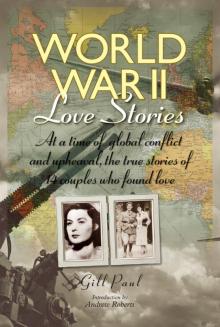 World War II Love Stories
World War II Love Stories